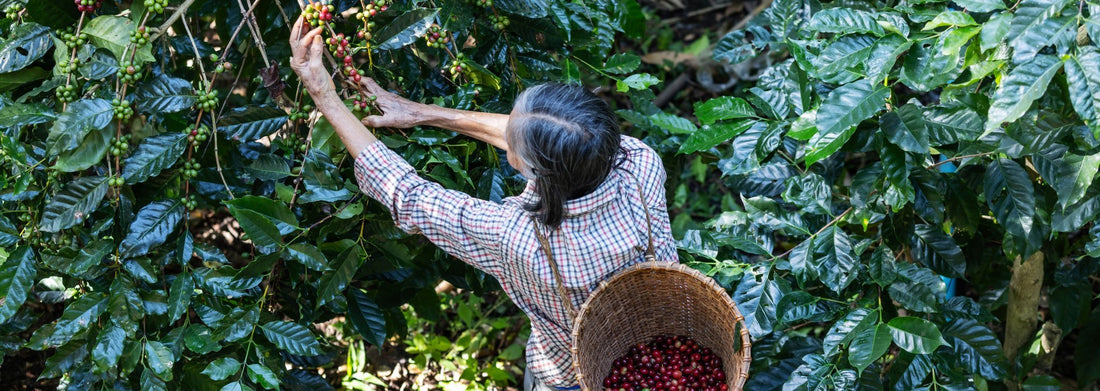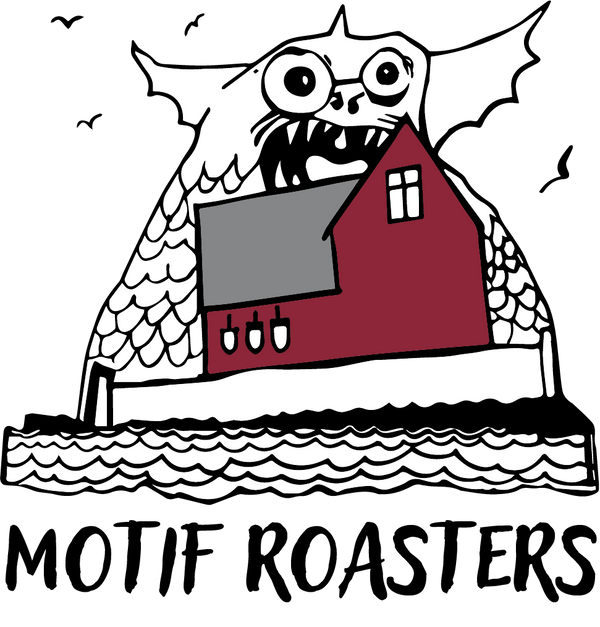
Beyond the Organic Label: What Really Makes Coffee Sustainable
Eoin VincentI've been fielding questions lately about whether our coffee is organic, and I've also stumbled across some pretty alarming claims from certain roasters about coffee plantations and their toxic practices. It's got me thinking about this whole organic certification thing, and honestly? I have some conflicting feelings about it.
That USDA Organic seal sounds straightforward enough – coffee grown without synthetic pesticides or fertilizers. But the reality is way more nuanced than a simple stamp of approval.
For the small-scale farmers growing much of the world's finest coffee, organic certification can be a real headache. The costs for inspection and annual renewals often exceed what these producers can afford – many of these farms are operating season to season, sometimes in debt, due to equipment or processing needs. The paperwork alone can be overwhelming for farmers with limited resources.
The fact is, pesticides can be dangerous. Many live on or near these farms with their families. So impact and scope is not lost on these farmers. The economic reality means many small-scale farmers rely on traditional methods passed down through generations – practices that are inherently sustainable and would qualify as organic if certified. Their approach comes from necessity and generations of knowledge, not from checking boxes on a regulatory form.
When sourcing beans for your morning cup (and mine!), I look beyond simple certifications to understand the full sustainability picture. That's why I value working with groups like Volcafe, which take a comprehensive approach to coffee growing. Their program trains farmers in best agricultural practices and carefully times any necessary pesticide applications to protect coffee pickers. They recommend traditional pest management techniques before chemical solutions and support farmer prosperity alongside environmental sustainability.
These holistic approaches often create more meaningful and lasting change in coffee-growing communities than a simple certification label alone. They impact both the product and the people behind it.
I encourage you to ask me about our sourcing practices and the relationships with farmers behind each coffee we offer. I've started adding some information about the different regions, so everyone can get a better understanding of where the coffee is coming from. Consider that direct trade relationships often provide better economic outcomes for farmers than certification alone. Value transparency in the coffee supply chain – companies that openly share information are typically more committed to genuine sustainability.
And understand that perfect solutions rarely exist in the complex world of global agriculture. Every approach involves a careful balance between environmental impact, farmer livelihood, and the quality in your cup. It's this balance I'm thinking about with every bean I source and every batch I roast.
Our stories about the different regions:
Our Coffees Colombian Heritage
Our Papua New Guinea Coffee Journey
Our Brazilian Coffee: The Mata De Minas Legacy
Other resources and readings:
Volcafe's Sustainability Strategy
Regenerative agriculture, permaculture, organic: What do these terms really mean in coffee?
